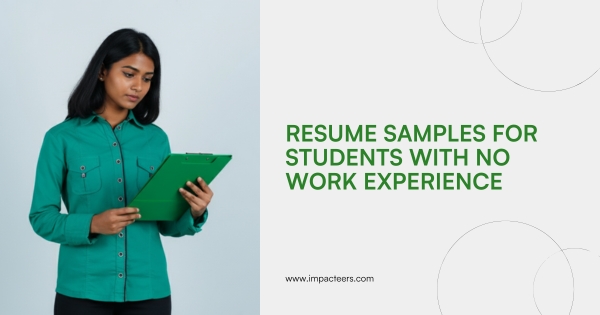Discover whether engineers should pursue UPSC. Analyze pros, cons, career shifts, preparation strategies, syllabus overlap, and how Impacteers Jobs helps engineer-aspirants build career flexibility.

Every year, a striking number of engineering graduates in India—from IITs, NITs, state colleges, and private institutions—pivot towards the UPSC Civil Services Exam. For some, it’s about purpose; for others, a plan B. And in many cases, it’s about finding meaning beyond machines, code, and corporate cubicles.
But is UPSC for engineers a wise switch? Can your technical background give you an edge in prelims, mains, or optional papers? Should you abandon a potentially lucrative engineering career to pursue a goal with single-digit success rates?
This guide is a realistic, grounded, and strategic walkthrough for engineers contemplating UPSC in 2025. Whether you’re preparing in your first attempt, juggling a job, or simply unsure, this blog helps you weigh the facts, the myths, and your long-term goals—with smart backup options like Impacteers Jobs to support your journey, whatever the result.
1. The Engineering-to-UPSC Phenomenon: Why It Happens
More than 45% of UPSC top rankers in recent years have come from engineering backgrounds. But why are engineers drawn to this path?
A. Academic Exposure to Competitive Exams
- Engineers are already trained in MCQ solving, time management, and logical frameworks—a huge plus in UPSC prelims.
B. Career Disillusionment
- Many engineering graduates feel unfulfilled in private sector jobs that lack public engagement or social impact.
C. Search for Purpose
- Civil services offer roles that directly affect governance, development, and policy implementation—appealing to those who want to “do more.”
2. Is UPSC the Right Fit for Every Engineer?
Short answer: No. Just because many engineers attempt UPSC doesn’t mean everyone should.
Ask yourself:
- Do I enjoy reading humanities subjects (history, polity, ethics)?
- Am I ready for a 1–2 year long prep cycle, including possible failures?
- Can I switch to a writing-heavy format after years of technical learning?
- Do I have a career fallback if things don’t go as planned?
Your answers will help decide whether UPSC or an Impacteers career pathway is more suitable.
3. Advantages Engineers Bring to UPSC Preparation
| Advantage | How It Helps in UPSC |
| Analytical thinking | Interpreting questions, case studies, decision-making |
| Time management | Managing 7-subject GS load + optional + current affairs |
| Math background | CSAT paper + data interpretation questions |
| Mock performance | Comfort with tests and self-analysis |
| Optional choices | Options like Mathematics, Electrical Engg., Physics |
4. Challenges Engineers Face in UPSC Preparation
| Challenge | Solution |
| Weakness in writing-based subjects | Daily answer writing + structured review |
| No familiarity with humanities | Start with NCERTs + simple concept videos |
| Over-reliance on logical thinking | Practice essays and ethics to build emotional lens |
| Career uncertainty after 1–2 failures | Use Impacteers Jobs for fallback opportunities |
| Isolation during preparation | Join mentorship groups or study cohorts |
5. UPSC Syllabus for Engineers: How Steep is the Learning Curve?
The UPSC syllabus is not technical, but it is logical. Engineers can adapt if they approach it like a system design challenge.
Prelims:
- General Studies: History, Polity, Economy, Geography, Environment, Science
- CSAT: Comprehension, Reasoning, Basic Math – easier for engineers
Mains:
- GS I–IV: Includes society, governance, ethics – needs writing and interpretation
- Essay: Needs creativity, structure, emotional depth
- Optional Subject: Can choose engineering subjects OR humanities
6. Optional Subjects for Engineers: Go Technical or Strategic?
| Stream | Good Optional Choices |
| Civil, Mechanical | Civil/Mechanical Engineering |
| Electrical, ECE | Electrical Engineering, Physics |
| CS, IT | Maths, Philosophy, Sociology |
| General engineering | Anthropology, PSIR, Geography, History |
Technical Optional – Pros:
- Familiarity, clarity in concepts
Technical Optional – Cons:
- Limited peer support
- Subjective scoring patterns
Tip: Choose based on interest, scoring trend, and available mentorship.
7. Should You Leave Your Job to Prepare for UPSC?
This depends on:
- Your financial cushion
- Time available per day for study
- Your confidence level after mock tests
- Your support system
Alternatives:
- Start prep while working for 6 months
- Take a sabbatical only if you’re consistently scoring high in prelims mock tests
- Use part-time mentorship + online courses
- Stay registered on Impacteers Jobs in case you need to re-enter the job market
8. Career Risks and the Importance of Backup Plans
UPSC success rate = ~0.2%. That’s the reality.
Every engineer attempting UPSC should:
- Prepare with full focus
- But plan for alternate careers
Impacteers Jobs helps engineer-aspirants with:
- Skill assessments
- Resume + LinkedIn rewiring
- Job roles in governance, policy research, public sector consulting, EdTech
- Short-term freelance or project-based options while preparing
Because one exam should never decide your future.
9. How to Strategically Prepare for UPSC as an Engineer (2025 Plan)
| Month | Milestone |
| Aug–Oct 2024 | Read NCERTs + pick optional subject |
| Nov–Jan 2025 | Complete GS basics + start test series |
| Feb–Mar 2025 | Focus on CSAT + Prelims mocks + revision |
| Apr–May 2025 | Final mock tests + full syllabus revision |
| Post Prelims | Shift to mains: GS answer writing + ethics + essay |
Use Impacteers for:
- Weekly goal tracking
- Ethics + essay skill development
- Optional-specific answer reviews
- Career mentoring and placement access (in case plans change)
10. UPSC vs Engineering Career: What Do You Really Want?
Ask Yourself:
- Do I want stability or uncertainty with impact?
- Can I commit 2–3 years to a highly competitive path?
- Is my motivation internal (service) or external (status/society)?
If the answer is service, purpose, challenge, and you’re ready to adapt—UPSC is worth it.
If you’re unsure, you can still attempt once with backup support—via platforms like Impacteers Jobs and mentorship networks.
Conclusion
Switching from engineering to UPSC is a bold, purposeful move—but not one to be made lightly. If you’re serious about serving India through administration, and you’re ready to trade stability for struggle—go ahead.
But prepare with strategy, self-awareness, and a support system.
UPSC demands clarity of mind, strength of writing, and consistency. And when you pair that with smart career buffers like Impacteers Jobs, you protect your future—no matter the result.
Frequently Asked Questions (FAQs)
1. Can engineers clear UPSC without coaching?
Yes. Many engineers clear in their first attempt with structured self-study, test series, peer mentorship, and online tools. Platforms like Impacteers help bridge the gap in writing and strategy.
2. What optional subjects are best for engineers?
It depends on your stream and interest. Maths, Civil, Electrical, and Philosophy are common choices. Choose what you can write well in, not just what you’re academically trained in.
3. Should I leave my engineering job for UPSC prep?
Only if you’ve built a financial cushion, done enough groundwork, and have backup options like Impacteers Jobs to fall back on. Don’t jump in blindly.
4. Are ethics and essay papers tough for engineers?
They can be initially. But with structured practice and mentoring—like that offered in Impacteers’ writing labs—engineers can score extremely well.
5. How does Impacteers help engineers pursuing UPSC?
Impacteers offers:
- UPSC-specific skill training
- Essay & Ethics mentorship
- Answer writing evaluations
- Career fallback support via Impacteers Jobs
- Job-matching in public policy, governance, and education sectors
Because whether you become an IAS officer or not, the goal is to build a life of impact, direction, and resilience.



Post Comment